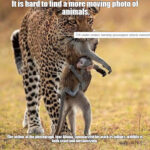The modern world of consumption is an arena where two fundamental forces clash: our innate need for order and predictability versus the chaos of advertising splendor designed to seduce us. The case of Lindt, the chocolate manufacturer, demonstrates how easily consumer perceptions can be manipulated using language that bears no actual relation to product quality.
In 2023, Lindt & Sprüngli, synonymous with luxury in the confectionery world, faced a lawsuit in the United States, accused of misleading consumers. Tests published by Consumer Reports revealed the presence of heavy metals—lead and cadmium—in some Lindt products, particularly in dark chocolates. These substances, though naturally occurring in the environment, can be toxic in larger amounts, and their presence in a premium product raises serious questions about production standards and consumer responsibility.
The Problem of Luxury as a Narrative
Consumers, enticed by slogans like “excellence,” “artisanal craftsmanship,” or “premium products,” expected quality justifying the higher price tag. However, as Lindt’s lawyers argued, these phrases are not commitments to the customer—they are merely “marketing tactics” meant to evoke an emotional association with prestige.
The court rejected this defense, ruling that brands cannot sell the idea of luxury without delivering actual value. This recalls the classic tension between façade and substance, which Nietzsche described as the conflict between “appearance” and “essence.” Advertising, rooted in appearances, often feeds our desires but fails to provide real foundations upon which we can base our trust.
Why Does This Matter?
Chocolate—a product so simple yet symbolic—becomes a metaphor for our consumer choices. When purchasing “luxury” confections, we are not just paying for their taste but also for a promise: the sense of exclusivity we wish to offer ourselves or others. Yet, if that promise is based on falsehood, we feel not only deceived but also endangered—because toxic substances in food are not a matter of aesthetics but health.
Deeper Reflection
It is worth asking: why do we so readily believe in luxury that is, in reality, an illusion? Perhaps it stems from our human need for meaning, the desire to experience something that transcends the ordinary. When a company like Lindt builds its empire on unfulfilled promises, it undermines not only consumer trust but also the foundations of its own existence.
This case also reminds us of the importance of critical thinking in a world overwhelmed by information and marketing messages. Perhaps the greatest luxury we can afford is awareness and the ability to distinguish truth from illusion. After all, true “excellence” does not need a slogan to stand on its own.



0 Comments